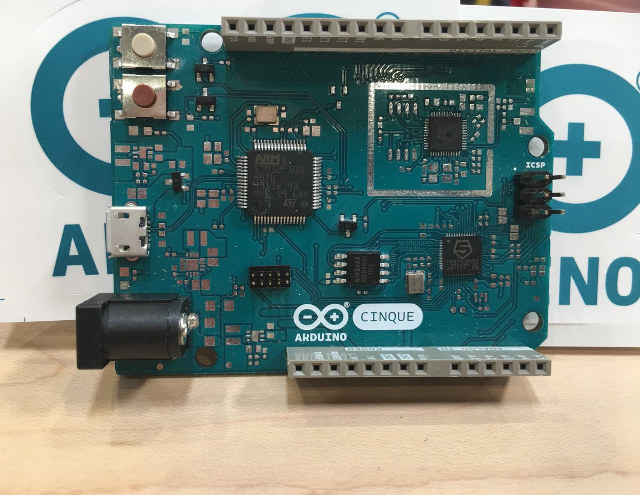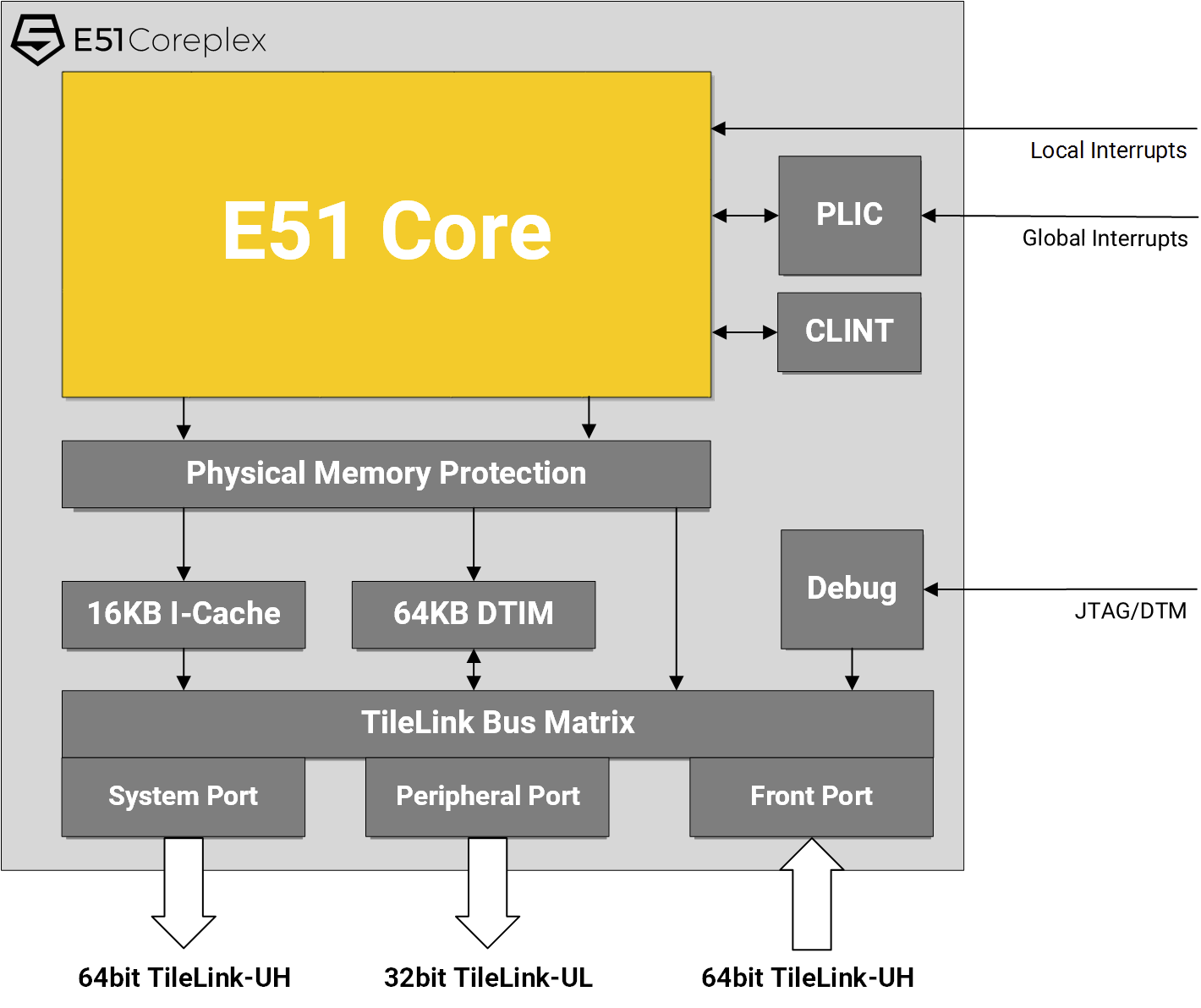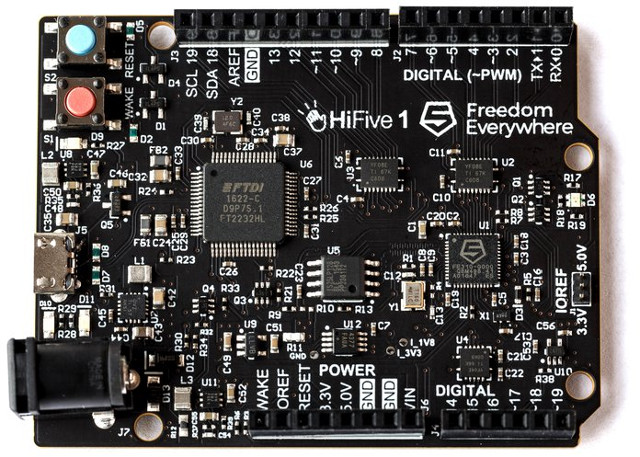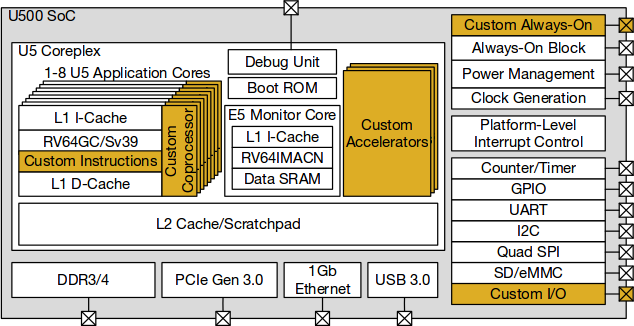SiFive introduced the first Arduino compatible board based on RISC-V processor late last year with HiFive1 development board powered by Freedom E310 MCU, but the company has been working with Arduino directly on Arduino Cinque board equipped with SiFive Freedom E310 processor, ESP32 for WiFi and Bluetooth, and an STM32 ARM MCU to handle programming. Few other technical details have been provided for the new board, but since it looks so similar to HiFive1, I’ve come with up with preliminary/tentative Arduino Cinque specifications: MCU – SiFive Freedom E310 (FE310) 32-bit RV32IMAC processor @ up to 320+ MHz (1.61 DMIPS/MHz) WiSoC – Espressif ESP32 for WiFi and Bluetooth 4.2 LE Storage – 32-Mbit SPI flash I/Os 19x Digital I/O Pins 19x external interrupt pins 1x external wakeup pin 9x PWM pins 1/3 SPI Controllers/HW CS Pins I/O Voltages – 3.3V or 5V supported USB – 1x micro USB port for power, […]
SiFive Launches 32-bit E31 Coreplex & 64-bit E51 Coreplex RISC-V Processors, Reveals Pricing
SiFive unveiled their Freedom U500 and E500 open source RISC-V SoCs last year, and a little layer launched HiFive1 Arduino compatible development board based on SiFive Freedom E310 processor. The company has now launched their non-open source Coreplex IP also based on RISC-V ISA with the 32-bit E31 Coreplex and 64-bit E51 Coreplex, and explained details about pricing. Some of the key features of the processors are listed below: E31 Coreplex 32-bit RV32IMAC core @ 900 to 1.5 GHz (with 28nm process) Advanced Memory Subsystem – 16KB, 2-way Instruction Cache, Instruction Tightly Integrated Memory (ITIM) option, up to 64KB Data Tightly Integrated Memory (DTIM) support Up to 16 local interrupts with vectored addresses Performance – 1.61 DMIPS/MHz ; 2.73 Coremark/MHz Power Consumption 28nm HPC process – Core only: 150 DMIPS/mW ; Coreplex: 41 DMIPS/mW 55nm LP process – Core only: 95 DMIPS/mW; Coreplex: 16 DMIPS/mW Applications: Edge Computing, Smart IoT […]
$59 HiFive1 Arduino Compatible Board is Powered by Sifive Open Source RISC-V MCU (Crowdfunding)
Royalty-free RISC-V instruction sets has been getting in the news in the last few years with various MMU designs from companies or projects like lowRISC, PULPino, and SiFive, and recently there are been rumors that Samsung may use RISC-V in their future IoT SoCs. Many projects are still in progress, and while you can get involved in OnChip Open-V MCU crowdfunding campaign to their get the MCU or a development board, the cost for the MCU ($49) and development board ($99) is a little on the high side, and delivery is expected in 2018 for most rewards. SiFive appears to have a more interesting open source RISC-V solution with HiFive1 Arduino compatible board going for $59 and slated to ship between December 2016 and February 2017. HiFive1 development board specifications: MCU – SiFive Freedom E310 (FE310) 32-bit RV32IMAC processor @ up to 320+ MHz (1.61 DMIPS/MHz) Storage – 128 Mbit […]
SiFive Introduces Freedom U500 and E500 Open Source RISC-V SoCs
Open source used to be a software thing, with the hardware design being kept secret for fear of being copied, but companies such as Texas Instruments realized that from a silicon vendor perspective it would make perfect sense to release open source hardware designs with full schematics, Gerber files and SoM, to allow smaller companies and hobbyists, as well as the education market, normally not having the options to go through standard sales channels and the FAE (Field Application Engineer) support, to experiment with the platform and potentially come up with commercial products. That’s exactly what they did with the Beagleboard community, but there’s still an element that’s closed source, albeit documented: the processor itself. But this could change soon, as SiFive, a startup founded by the creators of the free and open RISC-V architecture, has announced two open source SoCs with Freedom U500 processor and Freedom E300 micro-controller. Freedom […]






